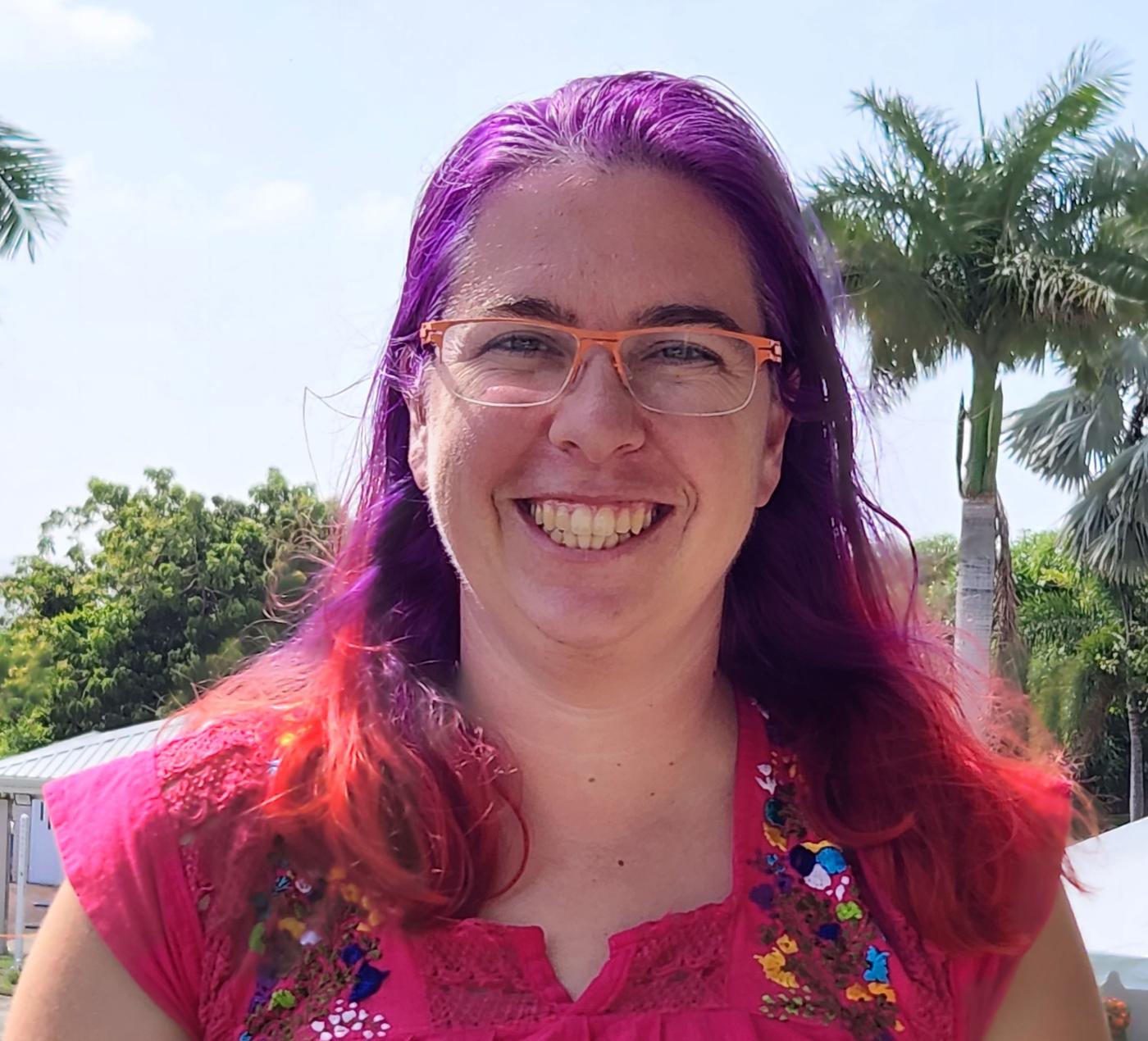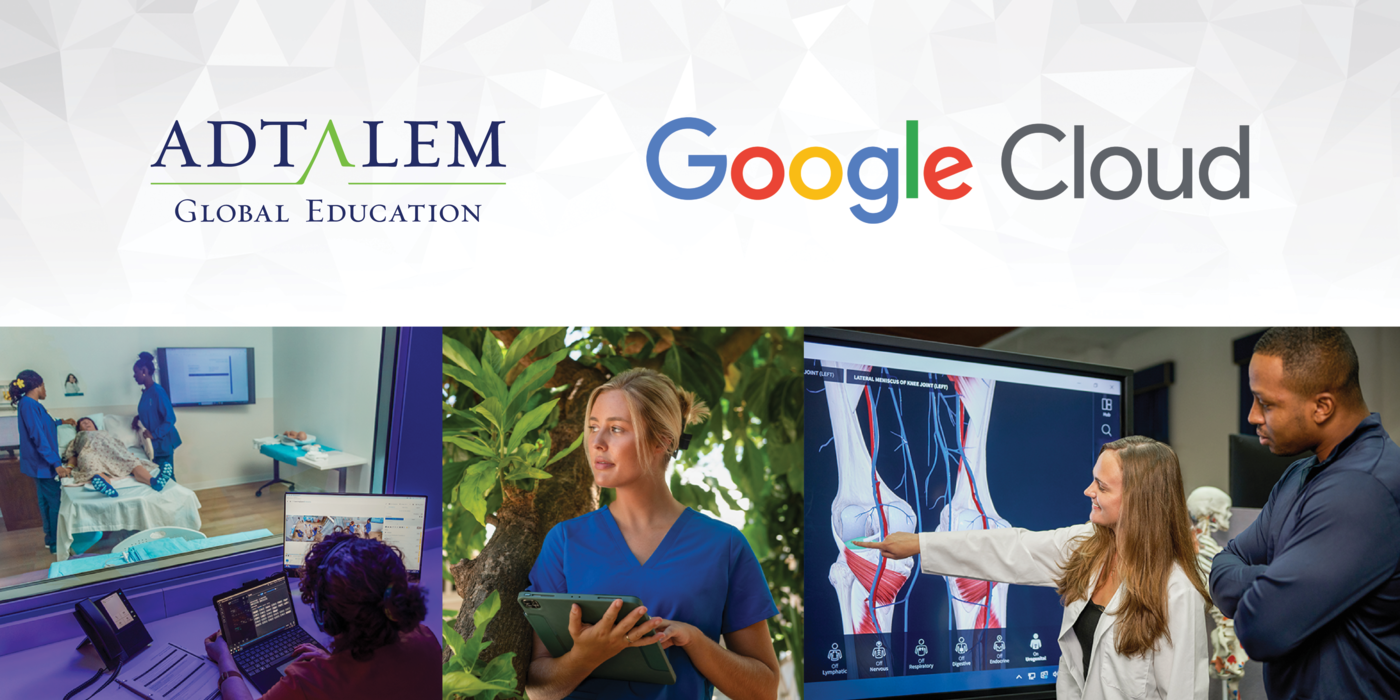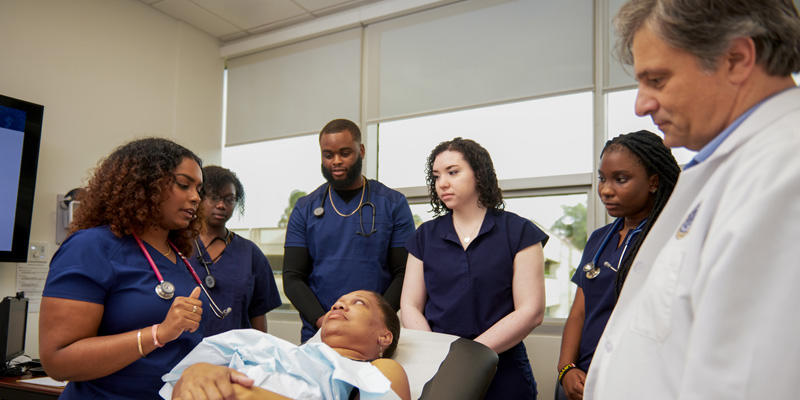Approximately 1 in 4 dogs will develop cancer. See what answers researchers at Adtalem found by analyzing data from the lives of thousands of Golden Retrievers.
Known for being playful, affectionate, gentle, and smart, Golden Retrievers are one of the most popular dog breeds of the last 10 years. But as they age, 60% of goldens will be impacted by cancer. What if that could be prevented through activity shared between dog and owner?
That is one of the conclusions drawn by Dennis Ronzani, a third-year veterinary student at Ross University School of Veterinary Medicine (RUSVM), through his research study— “Unraveling Correlations Between Exercise and Neoplastic Disease in Golden Retrievers Using Big Data Analysis.”
Ronzani and Dr. Sarah Hooper, director of RUSVM’s Research Center for Veterinary Education, Diversity, and Data Analytics, have been conducting their research via the Morris Animal Foundation’s Golden Retriever Lifetime Study.
Their findings have been encouraging.
Along with frequency of exercise throughout the week, other factors that seem to reduce the risk of developing cancer are the pace and duration of the activity. According to the World Animal Foundation, Golden Retrievers are categorized as a very high-energy breed, requiring over one hour of daily exercise and nearly eight hours per week.
In June, Ronzani presented the results of his and Dr. Hooper’s study at the American College of Veterinary Internal Medicine’s 2024 Forum.
Merging AI, Big Data Analysis, and Animal Healthcare
Ronzani was awarded a grant from the Morris Animal Foundation’s Veterinary Student Scholar Program based on a proposal he and Dr. Hooper submitted to gain access to the Lifetime Study’s historical data, particularly focusing on exercise.
According to MAF, The Lifetime Study is one of the largest, most comprehensive prospective canine health studies in the United States with more than 3,000 participants—to identify the nutritional, environmental, lifestyle, and genetic risk factors for cancer and other diseases in dogs.
The objective was to implement machine learning to analyze the Golden Retrievers’ exercise habits being reported via surveys from their owners. They did so by converting the survey responses to cleaned, quantitative data to better detect patterns.
Machine learning, including the lengthy data cleaning process, determines whether patterns being discovered indicate a connection between a Golden Retriever developing neoplasia and their exercise routines.
Neoplasia is the term for abnormal cell or tissue growth, and though not all neoplasms are cancerous, malignant neoplasms are. Approximately one-in-four dogs will, at some stage in their life, develop neoplasia, and almost half of dogs over the age of 10 will develop cancer, according to the American Veterinary Medical Association.
“Right now, this research is for our companion animals, but at the same time it's also equipping the future generation with the skills needed to further improve animal health,” Dr. Hooper says.
Unlocking One Health
One Health is incorporated into the research being conducted by students and faculty at RUSVM. Explore a One Health Approach to Veterinary Research.
With their research on track toward publishing, Ronzani believes further research on canine exercise may potentially uncover something humans could learn from dogs for their own benefit, demonstrating the interconnectivity between species that initially helped him build his study.
“One Health is extremely important for coming up with a study like this,” says Ronzani. “I exercise frequently and know what to do to keep myself healthy, and that’s what got me started into this project. I know what the recommendations are for me as a human, so I was able to build the framework of the study around that.”
For more information, email the Adtalem Global Communications Team: adtalemmedia@adtalem.com.





